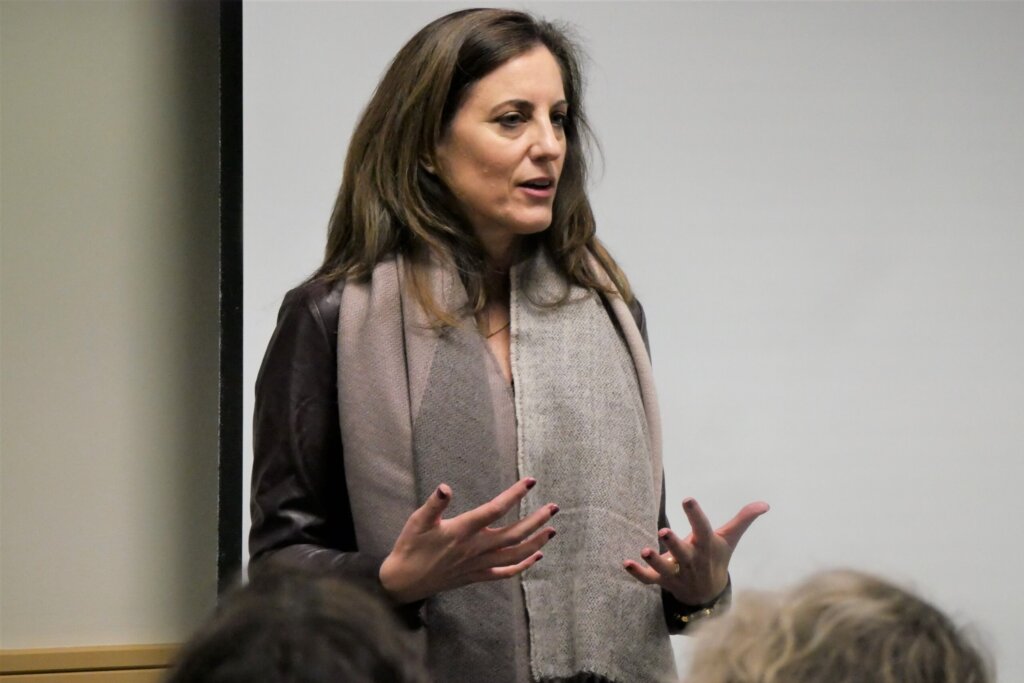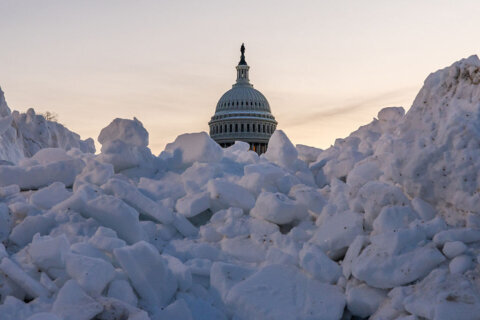
In the aftermath of the storming of the U.S. Capitol on Jan. 6, 2021, a D.C. political scientist believes persistent misinformation about the 2020 election could imperil the future of democracy.
“This is the most important issue facing our country, the state of our democracy,” said Lara M. Brown, director and professor of The Graduate School of Political Management at George Washington University.
“We have Republicans who believe in the ‘big lie,’ who are working to undermine our safe and fair electoral processes in the states,” she said.
Brown, an author who also has a doctorate in political science from the University of California, Los Angeles, said there was no widespread fraud in the 2020 election.
The process that allows states to investigate controversies and resolve those controversies by the safe harbor deadline prior to those state electors voting to certify their state ballot all happened last December.
“And what is disturbing is that there are many people who believe that process either did not happen or happened in some kind of corrupt way. And that is just patently false. And we now have people who believe that our constitutional process is in fact corrupted,” she said.
Now, in addition to the issue of changes to voting rights that some believe will limit participation, Brown is concerned about the process by which people are able to oversee the casting and counting of actual votes.
State legislatures nationwide are looking to revise laws pertaining to the Electoral College to create a process by which a legislature could overrule votes cast by electors in that state, if the election doesn’t go the way they believed.
“And their goal is to in fact, ensure the partisan outcome they prefer. And that is not a democracy,” Brown said.
Democrats and Republicans talking about policy differences and debating different legislative proposals — whether it’s build back better, or other types of things — is not as important as what is happening with respect to the nation’s political climate, according to Brown.
She’s concerned about what the Jan. 6 insurrection reflects related to the security of the separation of powers outlined by the Constitution.
“The most important thing that people miss when they look at this is that, yes, it was an attempted assault on members of Congress who were engaged in their constitutional duty to, in fact, certify the presidential electoral ballots. But it was also a terrifying attack from the executive branch on the legislative branch,” she said.
During Congress’ certification of Electoral College votes, the vice president assumes the role of president of the senate to serve in a legislative capacity.
“But what we saw from President Trump’s administration, including his chief of staff, Mark Meadows, and some of the advocacy efforts of those in the administration, was that Vice President Pence should act as an executive branch official, and should help to overrule the will of the people by undermining the legislative branches authority,” Brown said. “And that is terrifying because the legislature is Article One of the Constitution.”








